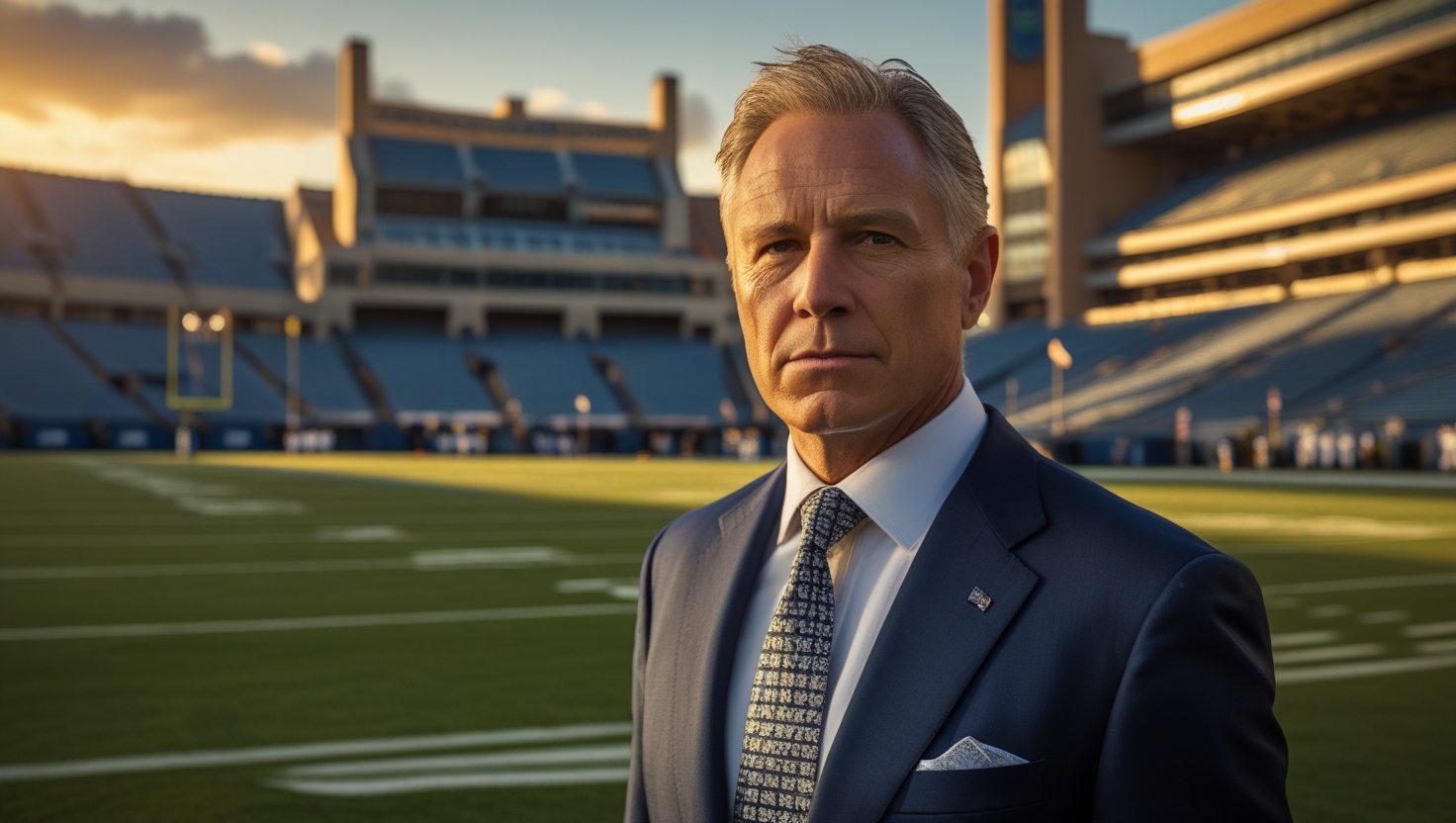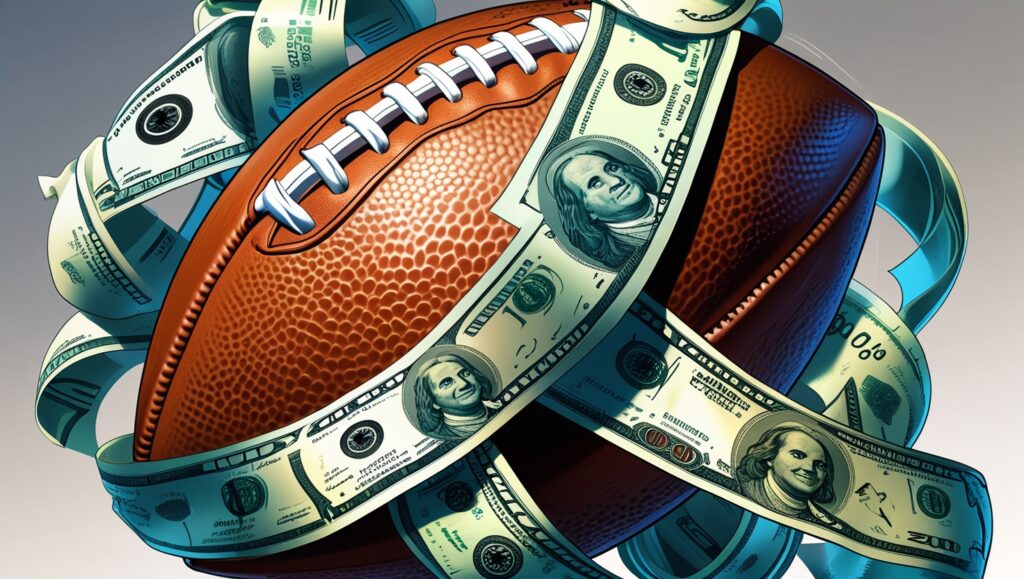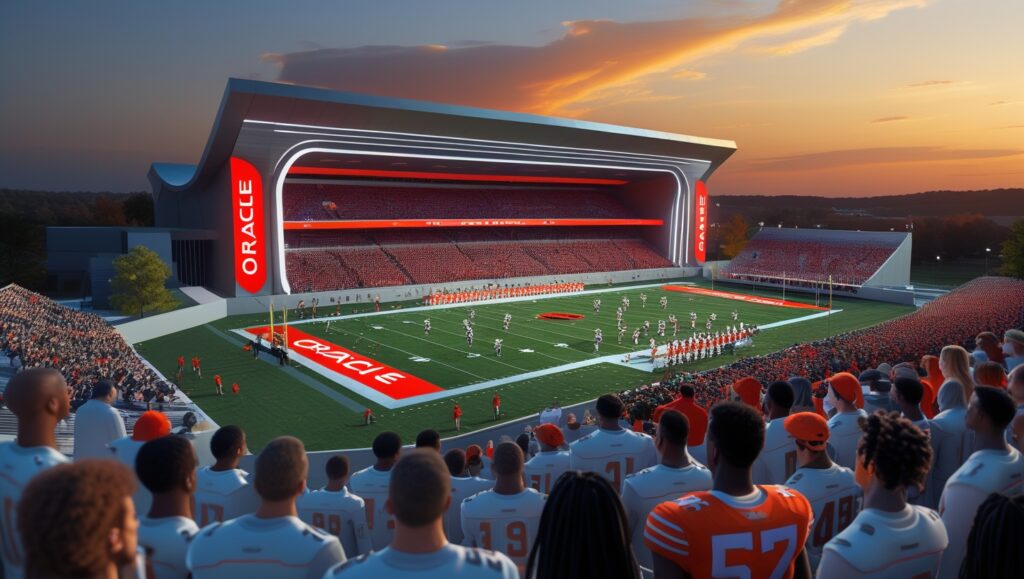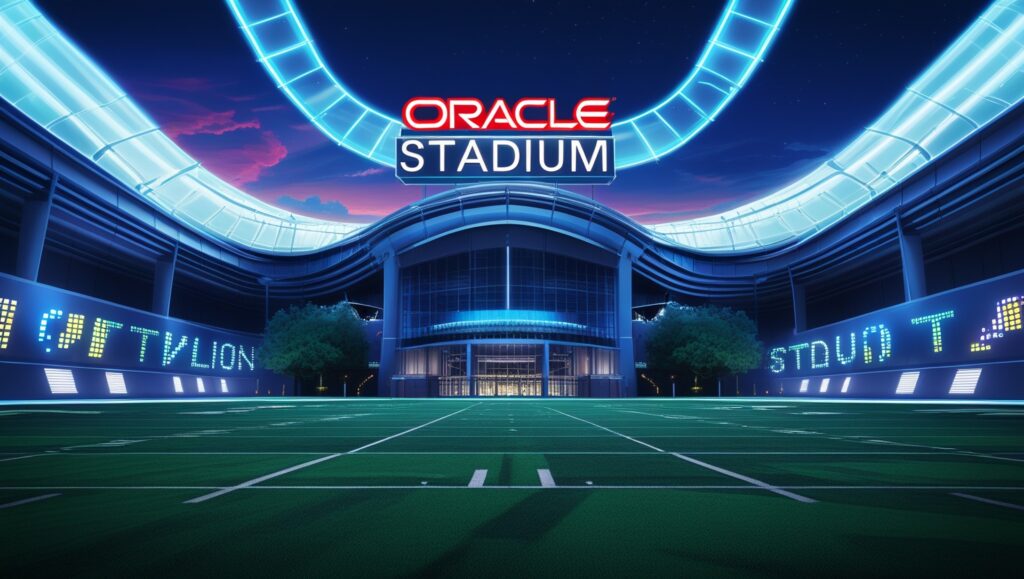Physical Address
304 North Cardinal St.
Dorchester Center, MA 02124
Physical Address
304 North Cardinal St.
Dorchester Center, MA 02124

College football has always been a battleground of talent, tradition, and tenacity. But in the age of NIL (Name, Image, and Likeness), it’s also becoming a playground for billionaires. Enter Larry Ellison’s big play in college football—a move that’s not only turning heads but rewriting the rules of recruitment, influence, and power in the sport.
When Oracle co-founder Larry Ellison, one of the richest men on the planet, stepped into the college football arena, few expected the seismic shift that would follow. His involvement in securing top quarterback Bryce Underwood for the University of Michigan has sparked debates, admiration, and a lot of curiosity. So what does Ellison’s move mean for the future of college football?
Let’s break it down.

Larry Ellison’s big play in college football refers to his pivotal role in orchestrating one of the most expensive and high-profile recruiting flips in NCAA history. In 2025, Michigan landed Bryce Underwood, the No. 1 high school quarterback in the nation, thanks to a jaw-dropping NIL deal reportedly worth $12 million.
Underwood had previously committed to LSU, but the Wolverines—backed by Ellison’s financial muscle and a dream team of supporters including Tom Brady and Dave Portnoy—managed to sway him to Ann Arbor. The deal wasn’t just about money. It was about mentorship, legacy, and building a winning culture.
Ellison’s wife, Join (Keren Zhu), a Michigan alumna, played a key role in the recruitment effort, driven by her passion for the university and its athletic program. Together, the Ellison’s helped assemble a support system that no other school could match, making this not just a transaction, but a transformation.
has long been influenced by wealthy donors, but Larry Ellison’s big play marks a new era. This isn’t about naming rights on stadiums or endowments—it’s about directly shaping the roster through NIL collectives.
The Champions Circle, Michigan’s NIL collective, facilitated the deal, offering Underwood a package that dwarfed LSU’s $1.5 million annual offer. This kind of financial firepower, backed by billionaires, is changing how programs compete for talent.
It’s no longer just about tradition or coaching—it’s about who can build the most compelling ecosystem for young athletes. And with Ellison’s entry, the stakes have never been higher.

Before NIL, college athletes were restricted from earning money through endorsements or sponsorships. Scholarships were the primary form of compensation. That changed in July 2021, when the NCAA allowed athletes to profit from their name, image, and likeness.
Since then, the landscape has evolved rapidly. NIL collectives emerged, offering structured deals to recruits and transfers. But Larry Ellison’s big play in college football takes this to a whole new level. It’s not just a deal it’s a blueprint for how elite programs can leverage wealth, influence, and branding to dominate recruitment.
Bryce Underwood’s flip from LSU to Michigan is more than a headline—it’s a case study in modern college football dynamics. Wolverines Discuss Impressions of QB Bryce Underwood After Fall . But his recruitment became a national spectacle when Ellison and others got involved.
Underwood’s deal includes mentorship from Tom Brady, regular FaceTime calls, and a support system that extends beyond the field. It’s a holistic approach to athlete development, blending financial security with personal growth.
And it’s working. Bryce Underwood joining rare Michigan true freshman QB club. His presence is already energizing the fan base and setting expectations sky-high.

The pros are clear: elite talent, enhanced visibility, and a competitive edge. Michigan’s ability to attract top recruits is now supercharged, and other programs are taking notes.
But there are cons, too. Critics argue that this creates an uneven playing field, where only schools with billionaire backers can compete at the highest level. It also raises ethical questions about amateurism, pay-for-play, and the role of money in college sports.
Still, the genie is out of the bottle. NIL is here to stay, and Ellison’s move may be the first of many.
Q: Why did Larry Ellison get involved in college football?
A: His wife, Join Ellison, is a passionate Michigan alumna who wanted to help restore the program’s championship potential. Ellison supported her efforts through financial backing.
Q: How much was Bryce Underwood’s NIL deal worth?
A: Reports suggest the deal was between $10 million and $12 million over four years2.
Q: Is this kind of NIL deal common in college football?
A: While NIL deals are becoming more lucrative, Ellison’s involvement and the scale of Underwood’s deal are unprecedented.
Q: What role did Tom Brady play in the recruitment?
A: Brady mentored Underwood through regular communication, helping build a personal connection that influenced the quarterback’s decision.
Q: Will other billionaires follow Ellison’s lead?
A: It’s likely. As NIL becomes more central to recruitment, wealthy individuals may increasingly shape college football’s future.
Larry Ellison’s big play in college football isn’t just a headline—it’s a harbinger. It signals a shift toward a more commercialized, competitive, and high-stakes version of the sport. With billionaires backing recruits, the traditional dynamics of college football are being rewritten.
For Michigan, it’s a win. For other programs, it’s a wake-up call. And for fans, it’s a glimpse into the future—where talent, money, and influence collide on the gridiron.
What do you think about this new era of college football? Is it a game-changer or a slippery slope? Drop your thoughts in the comments and join the conversation.